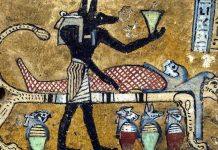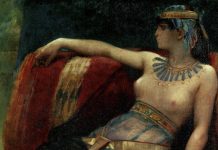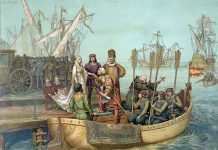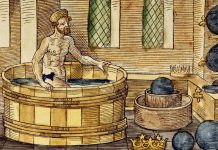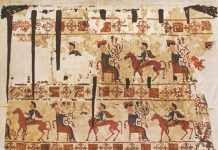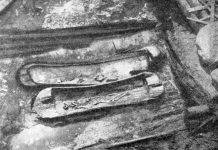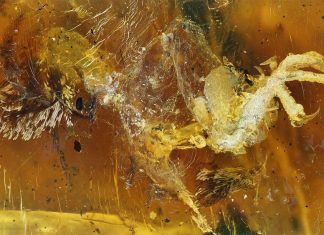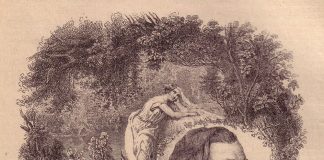On the trail, the man, the plaintiff for treason, was, perhaps, one of the first voluntary Robinsons. He did not retire to the island because of a desire for solitude or a love of adventure, he was forced to do so by circumstances that fatally changed his whole life. He spent almost thirty years on the island of St. Helena, hiding for a long time from people visiting the island who wanted to help him.
The nobleman Fernando Lopez was an official in Goa, a Portuguese colony on the west coast of Hindustan. In 1516, he was convicted of a large bribe, he preferred personal enrichment to the interests of his country. In those harsh times, officials were not given ten years of probation for such transgressions, but an executioner was brought in to punish them…
Someone was simply deprived of life, someone was treated with much more sophisticated cruelty, and Lopez was among the latter. In the square, surrounded by a crowd of curious people, the executioner first cut off Fernando’s right hand and thumb on his left hand, then in addition cut off his ears and nose…
After such an execution, Lopez, bleeding, had to die a painful death, but he managed to survive. There was no way to stay further in Goa, where everyone pointed at him and spat after him, so Lopez was going to return to Portugal. In 1517, he boarded a ship and sailed to his homeland. However, when the ship landed on the island of St. Helena, he went ashore with the sailors and hid in the thickets.
They did not look for him for a long time, the reason for such an act was clear to many. It should be noted that the sailors showed not only an understanding of the motives of this flight, but also compassion for the cripple. They left some clothes for him on the shore, salt, crackers, dried meat, and even lit a fire for him so that Lopez could have fire and warmth all the time while supporting him. The note advised him to signal passing ships in case of urgent need, then they would be able to come to his aid.
It is unlikely that the flight from the ship was a spontaneous act of Lopez. Perhaps back in Goa, he decided to stay on St. Helena, knowing that the ship would definitely stop here to replenish water supplies. Returning to Portugal to appear disgraced in front of his wife and children with a disfigured face and without an arm, apparently, was beyond his strength. Thus began the almost thirty-year-old robinsonade of the Portuguese nobleman-cripple.
Although Fernando had only four fingers to get food, he did not starve on the island. At that time, the island was almost entirely covered with forest, and Lopez found a lot of edible roots in it. On the shore he caught turtles, and in coastal waters — fish, the invalid even managed to catch feral pigs sometimes. We must pay tribute to this man, with one hand he was able to dig himself a fairly decent cave in volume, in which he comfortably spent time when the rain was lashing outside or a piercing wind was blowing.
The cripple had the idea that the ship was sent specifically for him to return him to Goa and put him in prison there. Lopez disappeared into the thick of the forest and waited for the sailors to leave the island. Only after seeing from the top of the cliff that the ship had disappeared over the horizon, Fernando returned to his cave.
It turned out that the Portuguese sailors managed to find his shelter, much to his surprise, Lopez found in the cave a supply of provisions left by them and some household trifles. There was also a letter in which he was advised not to be afraid of people, but to boldly turn to them for help. However, Fernando could not overcome his panic fear of people, more than once ships stuck to his island, but every time he hid from the sailors in the thicket of the forest.
Robinson’s Cave became an object for the Portuguese to visit during their stops at St. Helena. They left old clothes, provisions, tools, and all sorts of household trifles in it. Of course, in Portugal they talked about Robinson the cripple, soon literally the whole country found out about him.
It got to the point that the Portuguese King Joao III himself found out about Lopez. He felt sorry for the unfortunate cripple, in a special letter the king forgave him all his sins and promised complete safety when returning to his homeland. The royal letter was delivered to Robinson’s cave, but it did not affect Fernando’s behavior in any way, he was still hiding from people.
During wars, fleeing from military operations, punishers or forced mobilization, some people became involuntary robinsons. In 1973, a sick and decrepit old man, whose name was Boni Maki, came out of the jungle of the island of New Ireland (near New Guinea). It turned out that in 1943, as a 20-year-old boy, he went into the jungle, fleeing from mobilization by the Japanese occupiers, who sent the inhabitants of the island to the backbreaking work of building fortifications. For 30 years he hid in the swampy jungle, ate snakes and berries. Boney did not know that the war was over, he had gone completely wild, and only illness forced him to go out to people. And in the Thai jungle from 1942 to 1980, 8 people were wandering, mobilized by the Japanese occupiers to build a strategic railway between Burma and Thailand. They fled from the construction site to the jungle, they knew nothing about the end of the war. A former translator of the Imperial Japanese army, who traveled to the places of his combat youth, accidentally came across these poor people in a remote area near the banks of the River Kwai.
The unfortunate Lopez decided that now he would definitely be taken somewhere — either to prison or to another execution… However, to his surprise, the captain treated him with great warmth and even gave him a written guarantee that no one would ever use violence against him. Here Lopez had a real psychological change, he burst into tears, finally the unfortunate cripple realized that no one wants to harm him and he should not be afraid of people anymore. Fernando promised the sailors not to hide from them anymore.
That’s how it turned out that the revenge of the Javanese boy, on the contrary, played a favorable role in the fate of Lopez. After that, he seriously thought about visiting his homeland and went to Portugal on the next ship. The famous calf was accepted by the royal couple themselves, treated him very favorably and again assured Fernando that he was completely forgiven not to fear anything.
The king and some courtiers helped Robinson financially, so he was able to buy chickens, ducks, pigs and goats. He brought all these animals, along with tools and books, to the island. Now he had no problems with meat, Robinson’s life became much more comfortable and, most importantly, calmer – now he was not afraid of incoming ships, but, on the contrary, joyfully greeted them. He enjoyed talking with the sailors, and they brought Robinson seeds and seedlings of plants. Lopez planted pumpkins, palm trees and pomegranate trees on the island, they still grow there and remind people of this famous Robinson.
Fernando Lopez died in 1545. He rarely complained about his fate and was quite satisfied with life on the island away from people. This robinsonade of a one-armed man with a disfigured face lasted for almost 30 years. Lopez turned out to be the only disabled Robinson in history.





